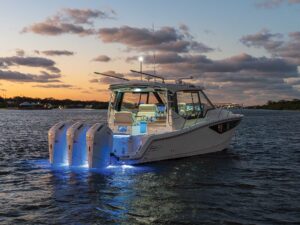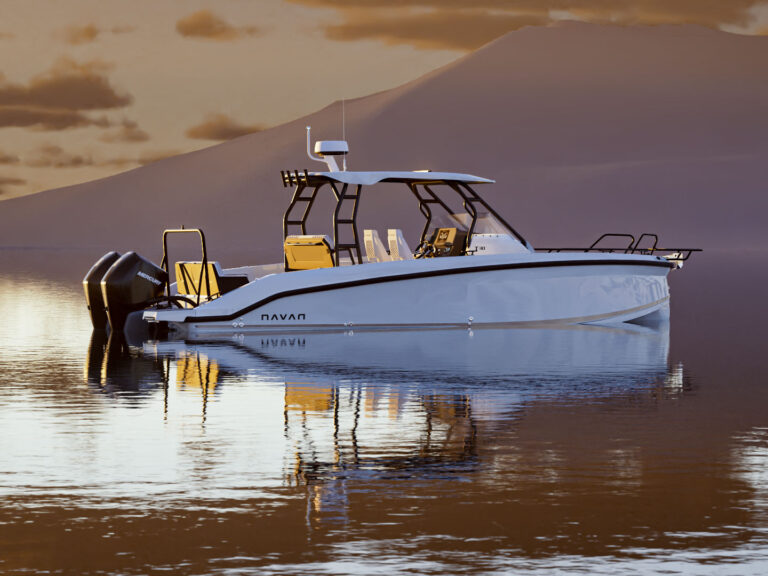
Electronic onboard security systems from companies such as GOST and Siren Marine can go well beyond alerting if your boat is moved. They can be customized to inform you about the status of the batteries, bilge water, bilge pumps, shore power and more. They can also be tied into motion and vibration sensors to tell you if someone is tampering with your boat while you are away from it. Additional sensors/relays let you control elements such as lights and the bilge pump. If your boat is stolen, the same systems can track the vessel’s location.
A security product such as the Siren Marine MTC monitoring and tracking system with a built-in GPS and global cellular service will work on a boat of any size, type or age, regardless of whether it is kept in the water, on a trailer or in dry storage. Here’s how to install one on a 21-foot-6-inch fiberglass center console boat.
Skill Level: 1.5/5
Finish Time: Approx. 2 hours (for MTC device only)
Tools and Supplies
* Siren Marine MTC system ($599)
* Siren Marine global cellular service plan ($180/year)
* Smartphone or other mobile device
* Siren Marine app (free)
* Additional power lead for second battery
* Assorted ring connectors with heat-shrink collars
* Diagonal cutters, wire stripper and crimping tool
* Heat gun
* Rule-A-Matic 35A float switch
* Additional sensors (both wired and wireless) available to customize the system
* Drill motor and drill bits
* Phillips screwdriver

Pick the Right Spot
At the heart of the system is a compact black-box controller. It comes with a convenient snap-on, snap-off bracket for easy removal to add sensor wires. We chose a mounting location in a dark recess high in the gunwale. This hides it from nefarious types who might be looking to disarm or discard the system. The elevated spot helps protect it from moisture, though Siren Marine has waterproofed the circuitry and junction box for the sensor wires. Its GPS and cellular systems will receive and transmit through fiberglass.

Power It Up
The Siren controller comes with a 12-volt DC power wire and a 5-amp in-line spade fuse. Connect the positive lead to the positive side of the starting battery. Connect the negative lead to a ground. Remove the two screws that secure the cover to the junction box. Loosen the terminal labeled Battery 1, insert the positive lead and tighten the screw. Do the same with the ground terminal and negative lead. A green LED on the controller indicates the GPS is powered up; a red LED indicates it has cellular service (subscription required).

Add Sensors
The system allows you to expand with additional sensors at any time. We already had voltage and location monitoring covered, so we started simple with a high-water sensor in the form of a Rule-A-Matic 35A float switch. The controller senses circuit continuity, so it doesn’t matter if you use positive or ground circuits. We hooked one of the float-switch wires to a negative bus block, and the other to the controller terminal labeled High Water. In the future, we plan to add other sensors such as a motion detector or pressure pad.
Read Next: Theft Prevention for Boat Trailers

Subscribe and Download the App
You can sign up for an annual, monthly or seasonal service plan at the Siren Marine website using the serial number on the controller. Then download the free Siren Marine app on Google Play (for Android) or the Apple Store (for iOS). The Siren Marine MTC App Guide included with the device will take you through the steps of setting up your smartphone or tablet to arm and disarm sensors, set the geofence, customize your home screen, and keep tabs on your boat from anywhere in the world.








